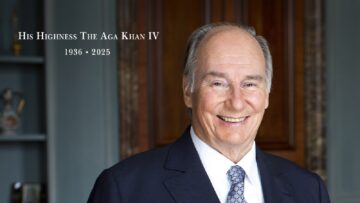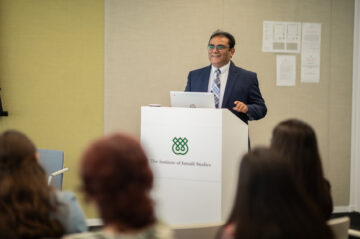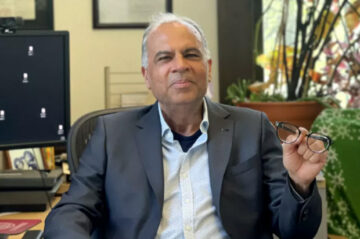Amongst examples of such a discourse are the Grameen Bank Housing Project in Bangladesh – a co–operative non–governmental association that first began a loan programme, without collateral, for the rural poor to help them initiate income–generating schemes; the Kampung Improvement Programme – an urban self–help community planning programme in Indonesia and the Aga Khan Rural Support Programme in the Northern Areas of Pakistan and in India.
Professor Nanji asserted that ethics should not be considered in isolation, but rather “we should consider the institutionalising of ethics to include the participation of communities, governments, foundations … we need to understand the process and aims of civil society.” He observed that societal issues relating to bio–medicine, the environment and corporate conduct requires Muslims and non–Muslims to generate fresh ethical perspectives that draw inspiration from both secular and faith–based conceptions of ‘The Good.’
The Institute looks forward to welcoming a host of distinguished speakers at future sessions in this series. The next seminar in June will include Dr Ziba Mir–Hosseini on gender in post–revolutionary Iran and Professor Abdou Filali–Ansary and Dr Norani Othman on the prospects for civil society in the Maghreb and Southeast Asia. In the autumn, Professor Ersin Kalaycioglu will speak on the relationship between Islam and civic culture in Turkey.
“The ‘Good’ Society: An Ethical Perspective”: extracts and seminar






